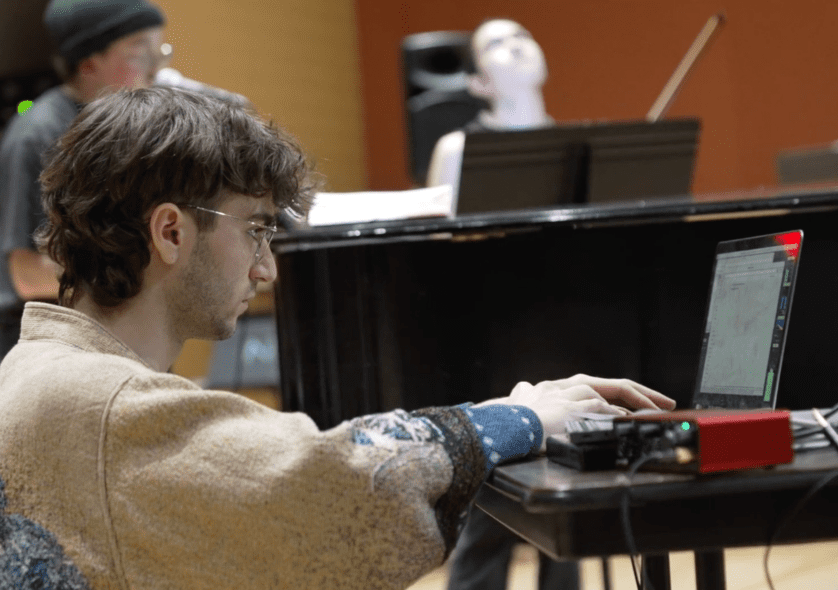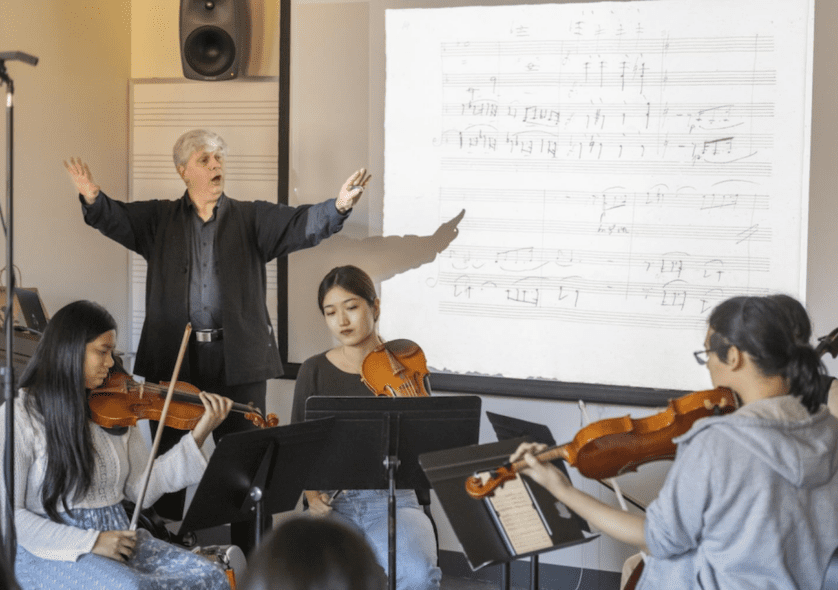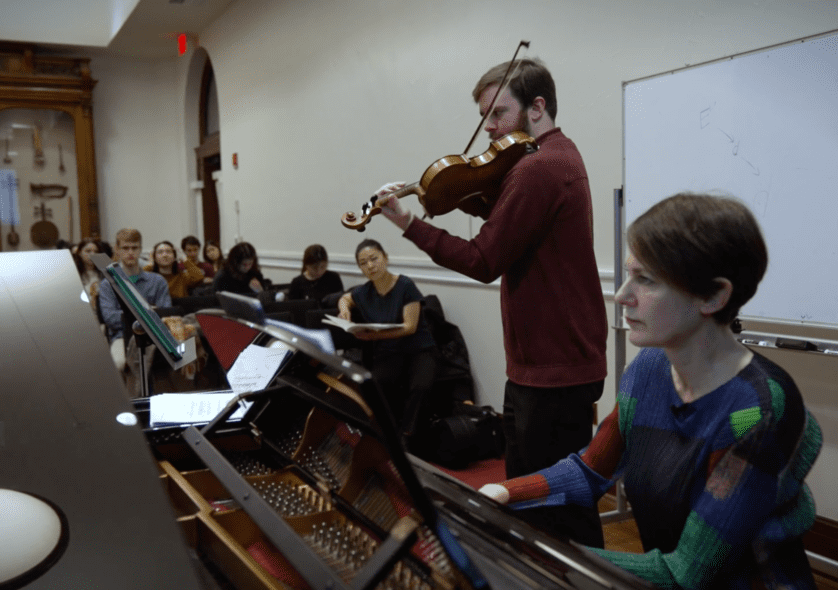Integrative Curriculum
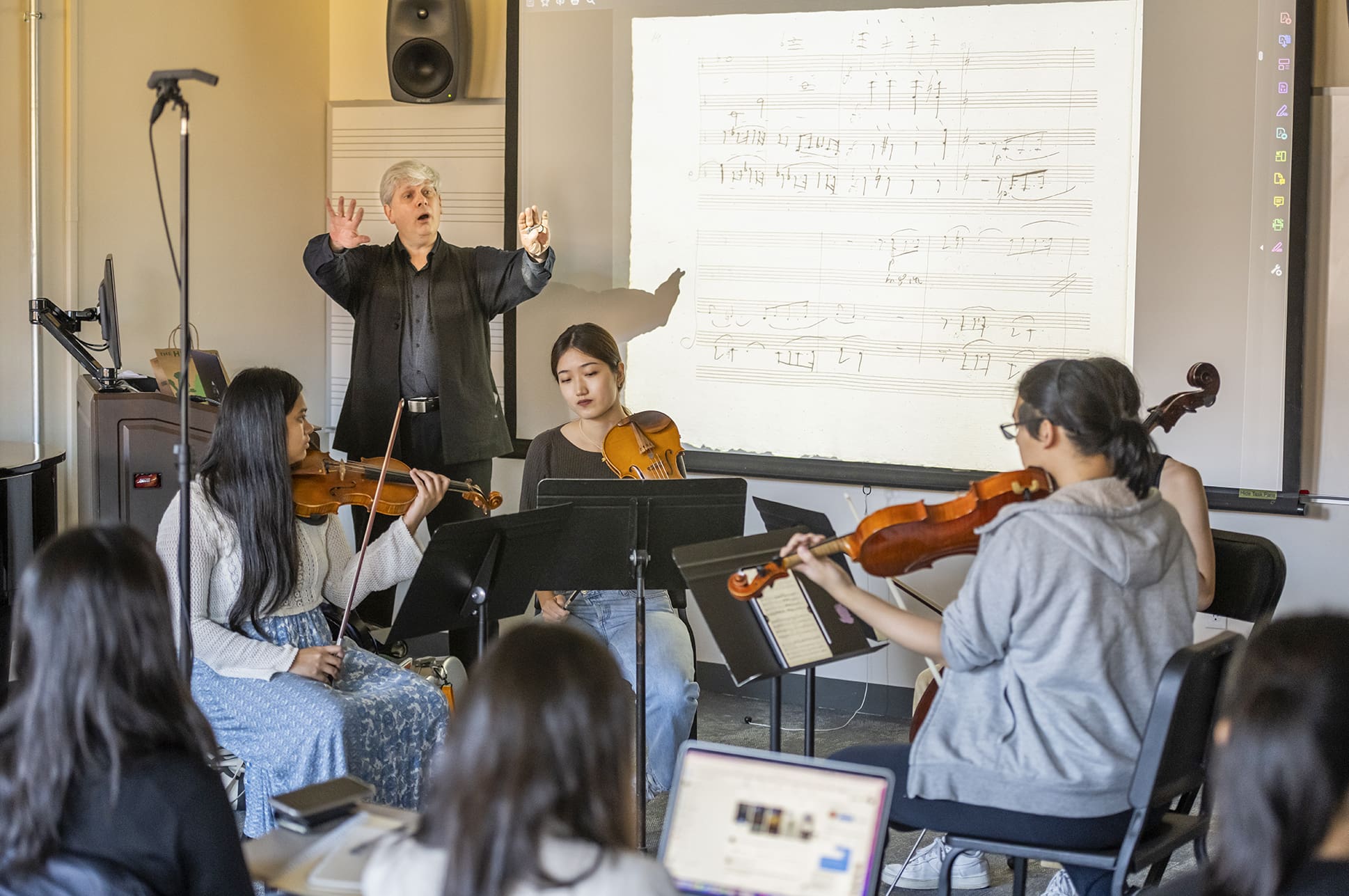
NEC’s new Integrative Curriculum weaves together the many strands of a conservatory education, including music history, performance, composition and entrepreneurship, in fresh and dynamic ways.
The result: NEC students graduate as holistic musicians with the tools and creative confidence to make a transformative artistic and social impact on their careers — and on the wider world.
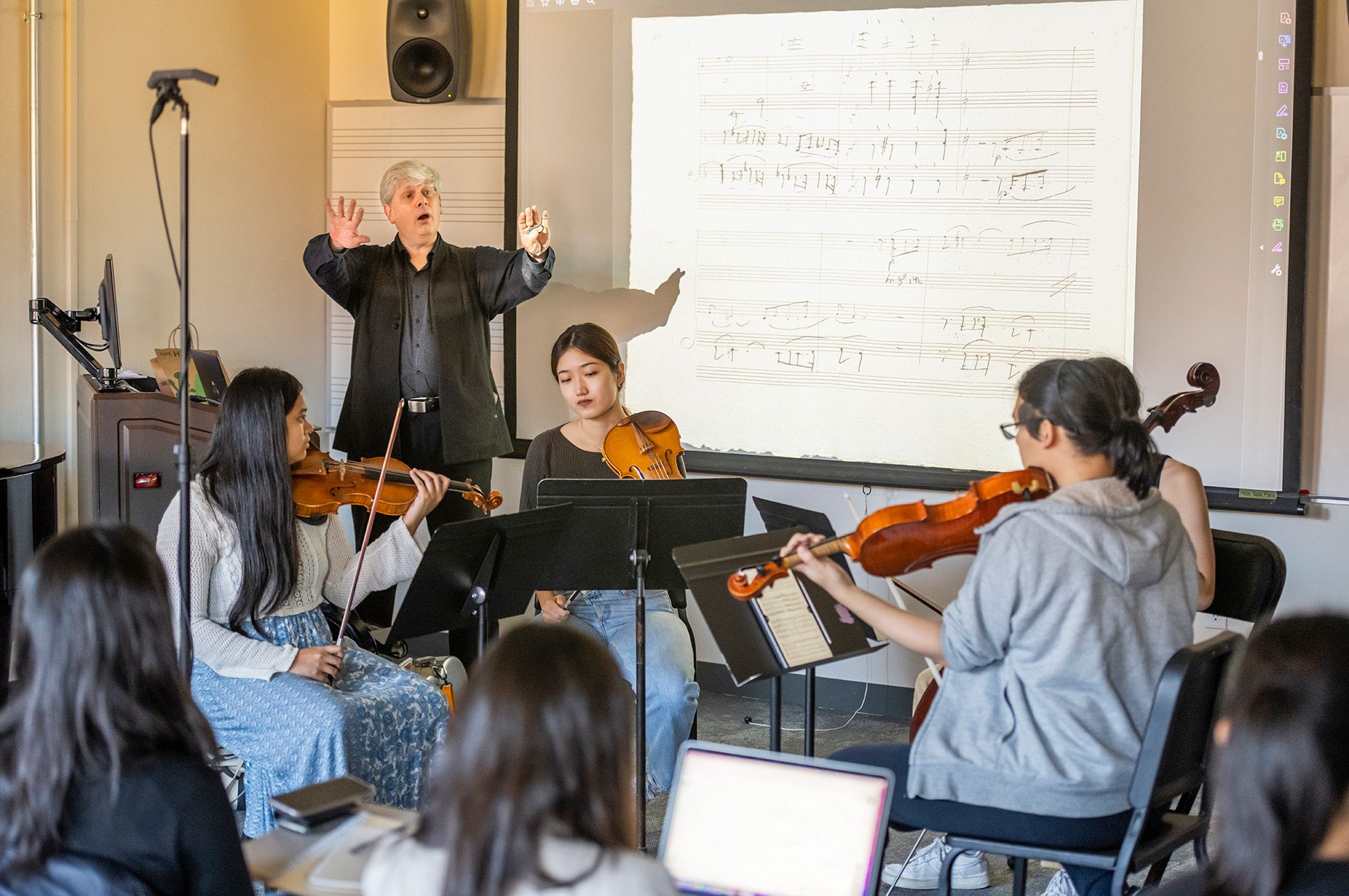
Where theory meets practice.
What’s unique about the NEC experience is that you get to try so many different things and branch out in so many different ways.”
Jordan Hadrill, ’22, ’24 MM
How it works
NEC’s innovative music education model puts music into context by combining traditionally separate classes — music theory, performance, and business skills — into comprehensive and engaging lessons that connect coursework with real-life applications. In these courses, theory meets practice, projects are central, and music is a lens to other disciplines. Faculty are encouraged to develop innovative ways to guide students to grow more deeply as artists.
As straightforward as this approach seems, it is a radical departure from the standard conservatory education. NEC introduced its new integrative approach to learning in 2022 and is moving to infuse this model into nearly every course it offers.
Goals
In this interconnected, applied-learning model, NEC supports and nurtures each student’s artistic voice and professional development, equipping them with a comprehensive range of core musical and management skills:
- collaborative ensemble work
- music technology and production
- leadership and entrepreneurship
- community engagement
- creative problem solving
